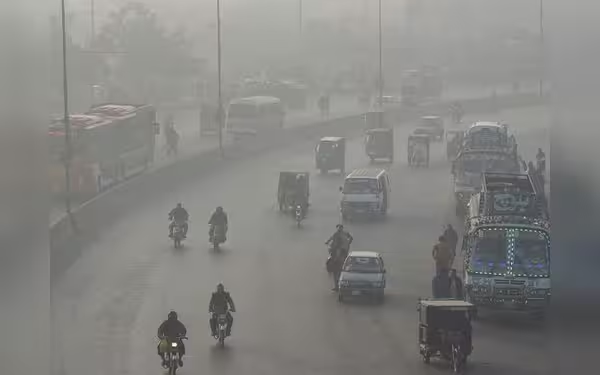Thursday, July 4, 2024 06:44 PM
WHO Urges Immediate Action on Karachi's Air Pollution Crisis
- Karachi ranks fourth globally in air pollution severity
- Primary sources include transportation and industrial emissions
- Pakistan's forest cover falls significantly below international standards
 Image Credits: Gulf News
Image Credits: Gulf NewsKarachi faces a severe air pollution crisis, with alarming levels of pollutants posing significant health risks. Urgent government action is needed to address this pressing environmental issue.
Karachi has recently been identified as the fourth largest polluted city globally, with its air quality index reaching a hazardous level of 193. This alarming revelation sheds light on the lack of attention given by both the federal and Sindh governments towards implementing crucial environmental reforms.
An investigation into the air pollution in Karachi has highlighted the presence of solid and liquid particles, as well as various gases in the atmosphere. The primary sources of pollution in the city are attributed to emissions from transportation and industries, along with the burning of garbage, emissions from refrigerators, generators, dust particles, and household stoves.
It is recommended by international standards that a country should have a minimum of 25% of its total land area covered by forests to combat environmental degradation, including air pollution. However, Pakistan falls short in this aspect, with only 5.01% of its land under forest cover, as per the latest economic survey released in June 2021.
The World Health Organization (WHO) has identified air pollution as a significant environmental hazard that poses a severe threat to human health, alongside climate change. The adverse effects of air pollution range from smog enveloping urban areas to indoor smoke, leading to various health issues such as heart diseases, strokes, respiratory ailments, cancer, and pneumonia.
With a staggering seven million global deaths annually attributed to exposure to ambient and household air pollution, urgent measures need to be taken by the government to address this critical issue before irreversible consequences unfold.













